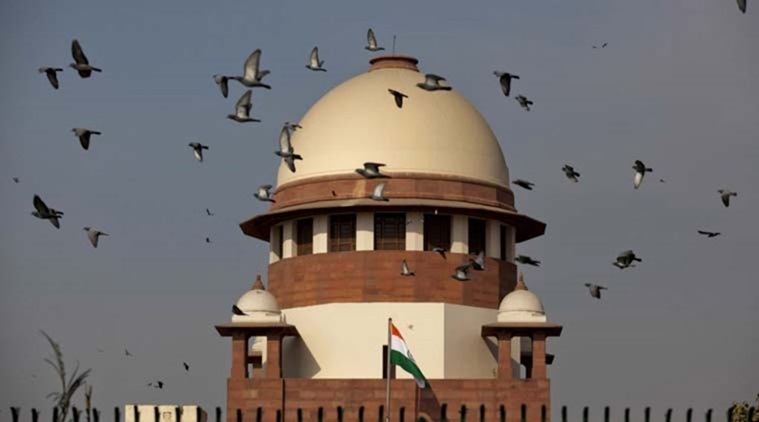Stay updated with the latest - Click here to follow us on Instagram
Can order transfer of cases from J&K: SC
‘Extraordinary power under Article 142 can be invoked’
 The Bench held that mere absence of an enabling provision could not be construed as a prohibition against transfer of cases to or from J&K. (Source: File Photo)
The Bench held that mere absence of an enabling provision could not be construed as a prohibition against transfer of cases to or from J&K. (Source: File Photo)
ASSERTING ITS authority under the Constitution to ensure access to justice for all, the Supreme Court Tuesday ruled that it can order transfer of cases out of Jammu and Kashmir despite non-applicability of procedural laws to the state.
A Constitution Bench led by Chief Justice of India T S Thakur said the apex court cannot hold its hands citing absence of enabling legal provisions since access to justice is a facet of the fundamental right to life.
The Bench, also comprising Justices F M I Kalifulla, A K Sikri, S A Bobde and R Banumathi, was called to examine whether cases could be moved out of J&K when provisions of the Civil Procedure Code and Criminal Procedure Code were not applicable to the state. It was contended that, in the absence of any provision empowering this court to direct transfer of civil or criminal cases from or to J&K, no such power could be invoked or exercised by this court.
[related-post]
Watch Video: What’s making news
But the Bench held that mere absence of an enabling provision could not be construed as a prohibition against transfer of cases to or from J&K, especially when the top court was empowered under various constitutional provisions, including Articles 32, 136 and 142, to issue orders in the interest of justice.
“Articles 32, 136 and 142 are, therefore, wide enough to empower this court to direct such transfer in appropriate situations, no matter if Central Code of Civil and Criminal Procedures do not extend to the state…The extraordinary power under Article 142 can be usefully invoked where the court is satisfied that denial of an order of transfer from or to the court in J&K will deny the citizen his or her right of access to justice,” ruled the Bench.
It underlined that even if the provisions empowering courts to direct transfer from one court to other were to stand deleted from the statutes, the superior courts would still be competent to direct such transfer in appropriate cases so long as such courts are satisfied that denial of such a transfer would result in violation of the right to access to justice.
The Bench further elucidated that since access to justice is a facet of the right to life guaranteed under Article 21 of the Constitution, a court order to protect this right could very well include a direction for transfer of a case from one court to the other. “Any such exercise would be legitimate, as it would prevent the violation of the fundamental right of the citizens guaranteed under Article 21 of the Constitution,” it added.
The top court also said that access to justice was not only a facet of right to life guaranteed under Article 21 but it was also a feature of the right to equality and equal protection before law under Article 14. It noted that while the litigants could seek transfer of their cases on substantial grounds in other states, this right was nipped in J&K and therefore, it violated the principle of equality before the law in relation to court proceedings.







